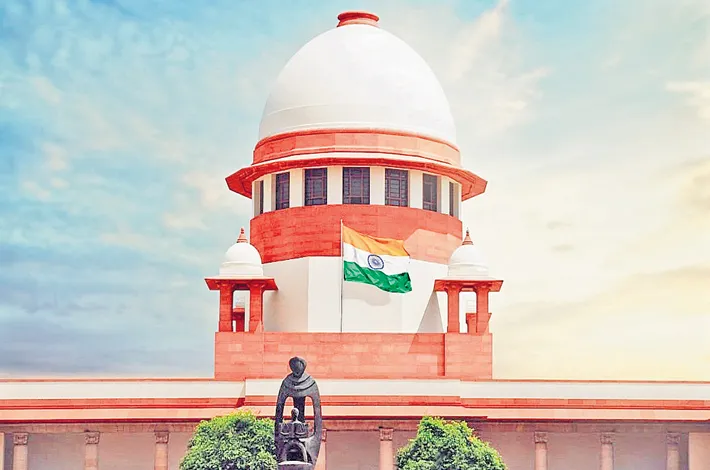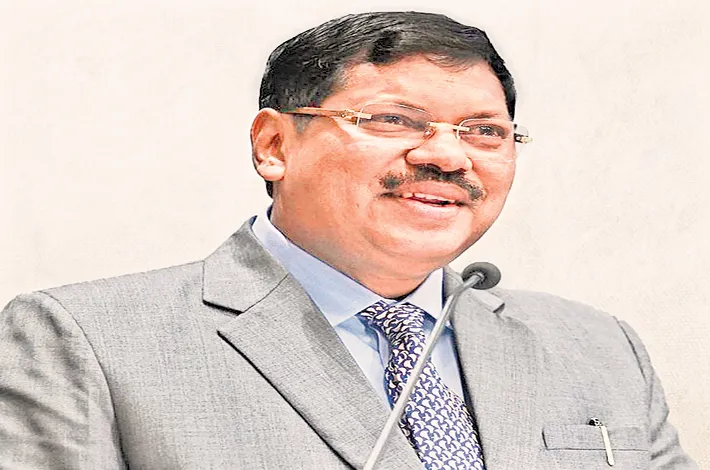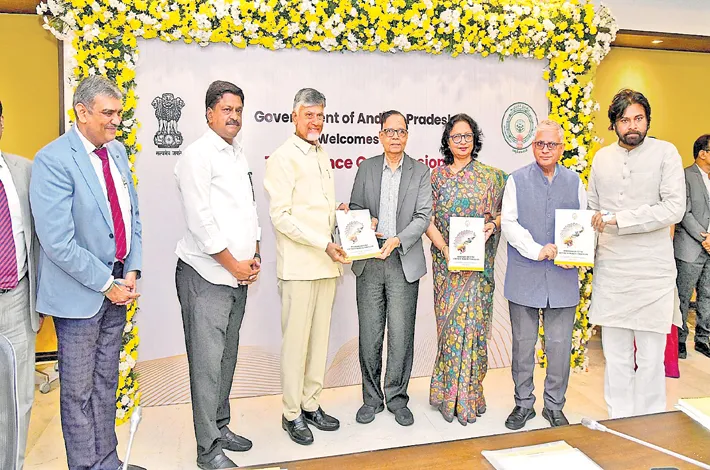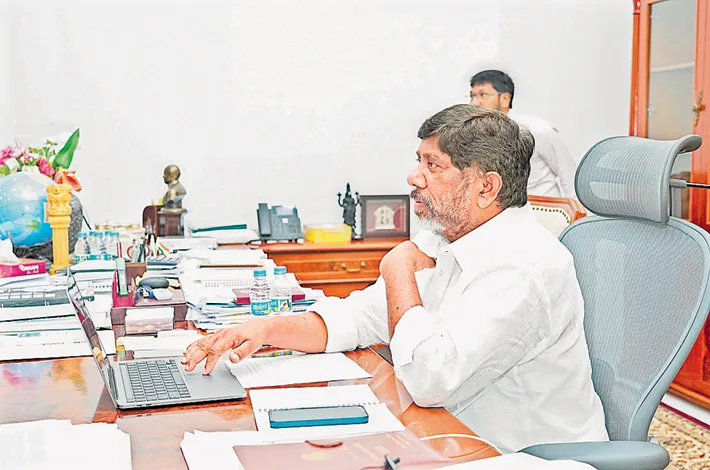Refugees Within Their Own Country
15-04-2025 12:00:00 AM
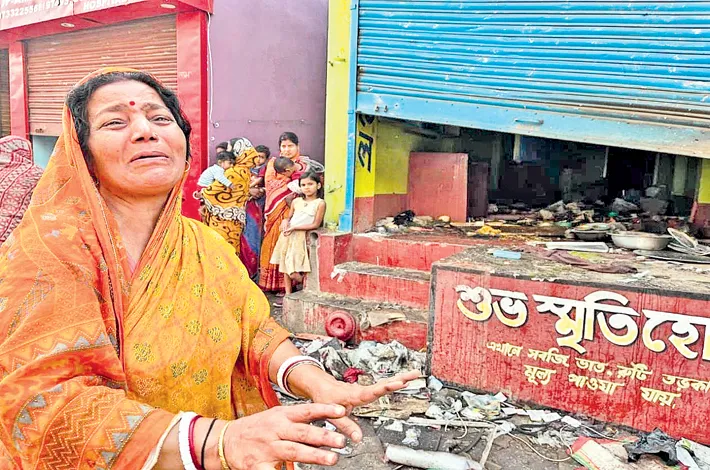
The Murshidabad Exodus – Communal Tensions and the Human Cost of the Waqf Bill Protests
What started as demonstrations spiraled into clashes, with reports of stone-pelting, vandalism, and arson. Three people lost their lives, and over 180 individuals were arrested, while the Calcutta High Court ordered the deployment of central forces to restore order
metro india news I murshidabad (west bengal)
The recent violence in West Bengal’s Murshidabad district, triggered by protests against the Waqf (Amendment) Bill, has left a deep scar on the region’s social fabric. Reports indicate that around 500 Hindu families, driven by fear of targeted attacks, fled their homes in areas like Dhulian, Suti, and Samserganj, seeking refuge across the Bhagirathi River in Malda.
The haunting visuals of families crossing the river on boats, leaving behind their possessions, evoked a major concern on social media. The situation, raising questions about communal harmony, political accountability, and the broader implications of legislative changes like the Waqf Bill.
What started as demonstrations spiraled into clashes, with reports of stone-pelting, vandalism, and arson. Three people lost their lives, and over 180 individuals were arrested, while the Calcutta High Court ordered the deployment of central forces to restore order. The Border Security Force (BSF) and Central Reserve Police Force (CRPF) were mobilized, and internet services were suspended in Murshidabad, Malda, and Birbhum to curb rumor-mongering.
The exodus of Hindu families emerged as one of the most distressing outcomes. Local accounts describe mobs targeting Hindu homes and businesses, creating an atmosphere of fear. Many families, reportedly penniless after abandoning their livelihoods, found shelter in schools like Par Lalpur High School in Malda’s Kaliachak-III block. The local administration provided food and accommodation, but the psychological toll on these displaced families is immense. The television program’s title, Refugees Within Their Own Country, underscores their plight—citizens forced to flee within their homeland, stripped of security and stability.
Politically, the crisis has ignited a fierce blame game. The Bharatiya Janata Party (BJP), led by figures like Suvendu Adhikari, has accused the ruling Trinamool Congress (TMC) of enabling “religious persecution” through “appeasement politics.” Adhikari claimed that the TMC’s tacit support for the protests emboldened “radical elements,” forcing Hindus to flee. Conversely, TMC leaders, including Chief Minister Mamata Banerjee, have rejected these allegations, asserting that the Waqf Bill, a central law, is the root cause of unrest.
Banerjee publicly stated that the law would not be implemented in West Bengal, urging calm and accusing the BJP of stoking communal flames for electoral gains. Congress MP Adhir Ranjan Chowdhury offered a broader critique, suggesting that riots occur where governments allow them, pointing to systemic failures in maintaining law and order.
This polarized rhetoric reflects West Bengal’s deepening communal fault lines. The state has witnessed similar tensions before, notably during the 2019 protests against the Citizenship Amendment Act. Murshidabad, with its history of communal sensitivity, has become a flashpoint, where political parties exploit religious divisions to consolidate their voter bases. The TMC’s outreach to Muslim communities and the BJP’s Hindu-centric narrative risk entrenching mistrust, making reconciliation harder.
The human cost, however, transcends political point-scoring. The displaced families face an uncertain future. Many are daily wage earners or small traders who cannot afford prolonged displacement. Social media appeals in Malda have led to donations of food and clothes, but these are stopgap measures. The state’s assurance of safety rings hollow for those who have lost homes and trust in their neighbors. Moreover, the internet shutdown, while aimed at curbing misinformation, has isolated communities, hindering relief coordination and amplifying fear.
Looking ahead, the Murshidabad crisis demands urgent action. First, the state must ensure the safe return of displaced families, backed by robust security and community dialogue to rebuild trust. Second, the central and state governments should engage stakeholders to address concerns about the Waqf Bill transparently, preventing further escalation. Third, political leaders must refrain from inflammatory rhetoric that fuels division. The Calcutta High Court’s directive for detailed reports by April 17 offers a chance to assess the situation impartially, but implementation is key.
The Murshidabad exodus is a stark reminder of India’s fragile communal harmony. The image of families fleeing on boats is not just a local tragedy but a national wake-up call. Legislative reforms, however well-intentioned, must be handled with sensitivity to avoid alienating communities. As West Bengal grapples with this unrest, the priority must be restoring peace and dignity to those displaced—not as refugees, but as citizens with the right to safety in their own land.





